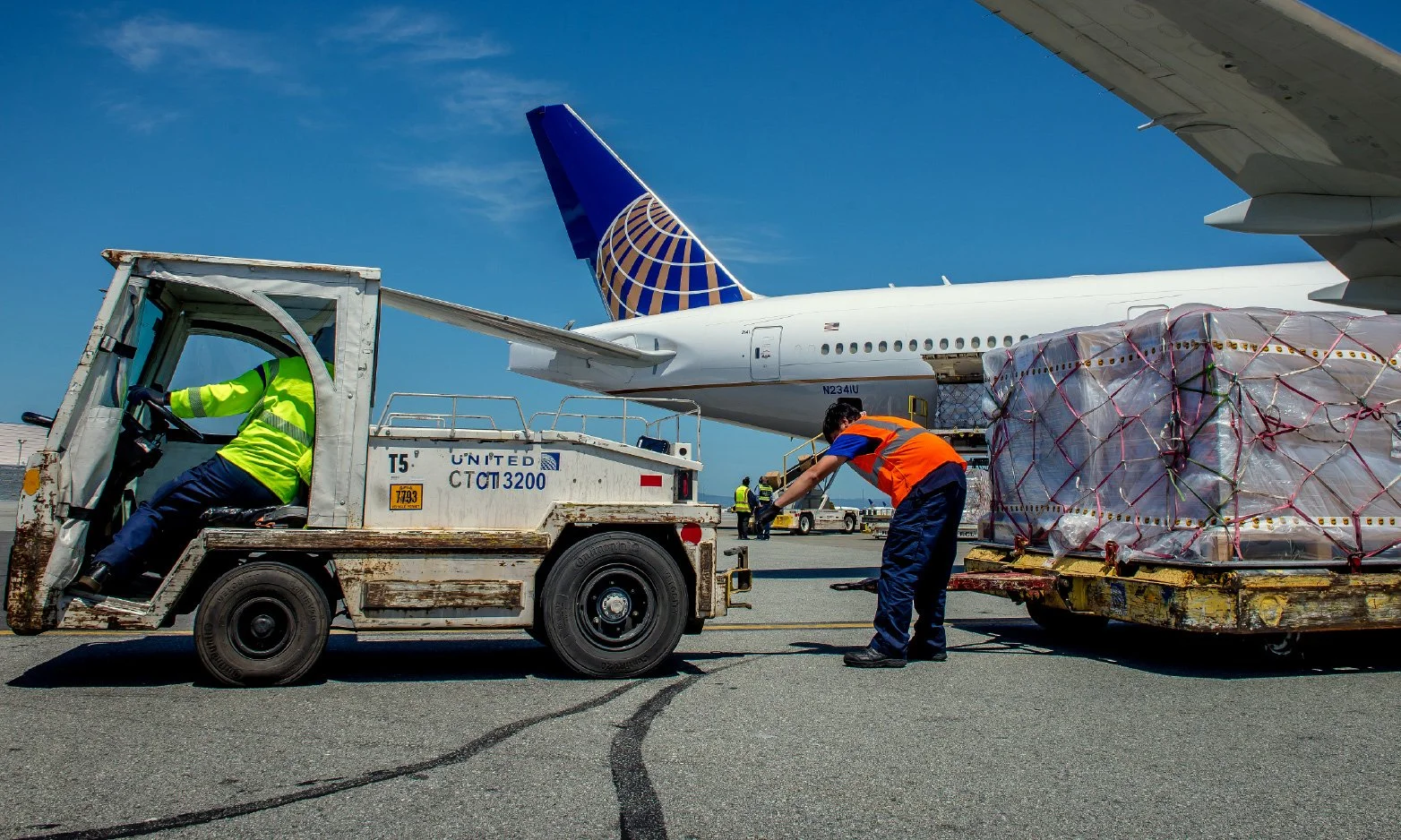A Higher Standard in Air Cargo: How United Cargo is Leading with Sustainability
Air cargo has become the backbone of many industries, from pharmaceuticals to e-commerce. Amidst this growth, companies in the sector face increasing pressure to not only keep up with demand but also to adapt to sustainability standards, meet customer expectations, and ensure flawless service.
The key to success in such a competitive and complex industry? It’s not just about speed or efficiency; it’s about the human touch. Companies that focus on building strong relationships, providing tailored services, and remaining flexible in their operations are setting themselves apart in a crowded marketplace. While technology undoubtedly plays a crucial role in streamlining processes, it’s the personal approach that can truly make or break a company’s reputation.
United Airlines, the parent company of United Cargo, has long been at the forefront of innovation in sustainable aviation. The airline has made significant strides towards reducing its environmental footprint, pioneering the use of Sustainable Aviation Fuel (SAF) and exploring groundbreaking technologies such as carbon capture, electric engines, and even air taxis. For United Cargo, this commitment to sustainability isn’t just a box-ticking exercise – it’s woven into the very fabric of their daily operations.
“At United Cargo, we are not just talking about sustainability – we are acting on it,” Jan Krems, President of United Cargo for United Airlines, said.
“We’ve electrified our ground service equipment, transitioned to biodegradable plastic wrap in many of our warehouses, and are constantly looking for ways to reduce our reliance on conventional fossil fuels.”
However, it’s the alignment of this broader sustainability agenda with their cargo operations that truly sets them apart. From electrifying ground services to reducing tarmac times and weather impacts,
The gateway city
At the heart of United Cargo’s operations is its state-of-the-art cargo facility at Newark Liberty International Airport. Opened recently, the Newark hub represents 30 percent of United Cargo’s total global tonnage and revenue. This impressive figure speaks volumes about the facility’s role in the company’s operations.
With over 319,000 square feet of cargo space, the Newark hub is one of the largest of its kind. It features 40 loading docks, temperature-controlled facilities, and high-tech infrastructure to ensure the smooth handling of cargo, especially for sensitive items like pharmaceuticals. The secret to United Cargo’s success lies not only in these technological advances but also in the personal attention the company pays to each shipment.
“Newark is vital to our operations, and this facility gives us the space we need to maintain our service quality and keep up with demand,” Krems said.
“But it’s not just about having a bigger space – it’s about ensuring that our clients feel the personal touch, that their cargo is important to us.”
Power of personalisation
United Cargo’s approach is visible in how it handles special products like pharmaceuticals and perishables. With strict Standard Operating Procedures (SOPs) and product-specific control towers, United Cargo has tailored its operations to meet the specific needs of each shipment.
“Reliability is key when handling temperature-sensitive products, and we have control towers in place that communicate directly with our customers,” Krems said.
“It’s not just about moving goods from A to B, but about ensuring that every step of the process is carefully managed and tailored to the product’s unique requirements.”
This close attention to detail extends to their strategic partnerships as well. United Cargo works with several interline partners to ensure seamless service across global routes. By sharing capacity and maintaining the highest quality standards across their network, United Cargo ensures that customers receive the same level of service, regardless of the carrier or route.
United Cargo, like the rest of the industry, faces significant challenges. Climate change, global conflicts, and political decisions like import tariffs all contribute to uncertainty in the air cargo sector. However, United Cargo has prepared itself for these challenges by diversifying its operations and forming key strategic partnerships across the globe.
“Our industry is constantly evolving, and it’s critical to stay ahead of the curve,” Krems explained. “We’ve diversified our business strategy to ensure that we’re not too reliant on one market. From temperature control services to e-commerce, we’re prepared to tackle any challenge.”
The human element
While technology and sustainability are crucial, United Cargo’s greatest strength may well be its people. United Airlines CEO Scott Kirby’s leadership has instilled a company-wide commitment to not only becoming more sustainable but also ensuring that each part of the business runs with precision and care.
This ethos, carried through all levels of United Cargo’s operations, is what has allowed them to remain a leader in the industry.
“Our aim is to make sure we’re positive and try to find solutions. Instead of saying ‘no,’ we see if there’s something we can do. At the end, if something doesn’t work, it doesn’t work, but the goal is to stay solution-driven.
“It’s important to keep working with people who have cargo knowledge—people with a ‘cargo heart.’ You need the right balance between young stars and experienced hands. That combination is essential for growth.
“I’ve been in the industry for so many years, and still, every day is a new day, a new challenge. If you have a positive attitude, this industry offers endless opportunities.”

